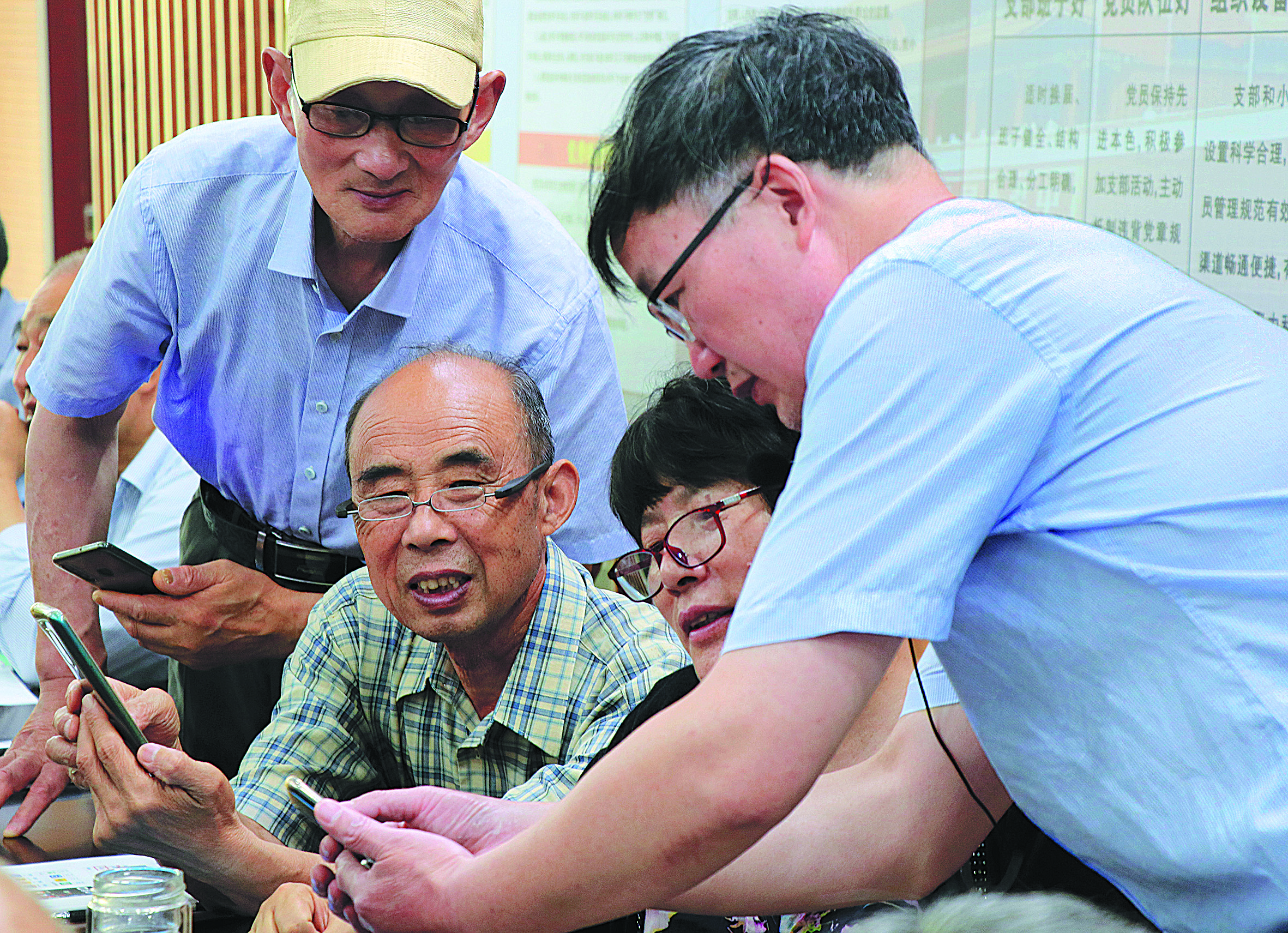Seniors spiral into internet addiction


Cheap entertainment
One activity Pan relishes is grabbing digital "red envelopes", packets of digital cash that other members send via the group as a test of speed-latecomers never get the money-and a type of inexpensive game.
She also prizes the immediacy of WeChat messages. Unlike phone calls, which can cause interruptions and require good timing, Pan can use the social media platform to make inquiries about relatives' vacation plans, their whereabouts and wellbeing whenever she feels like it.
It is so convenient that she feels phone calls have almost been made redundant by the constant stream of texts or voice messages. It is also the place where Pan consumes celebrity gossip and learns trendy words, which she uses to bond with her grandchildren.
"The only downside is that the smartphone strains my eyes," she said.
Excessive surfing online can have other deleterious health affects, such as damage to the disks in the neck and a heightened risk of stroke (as a result of long periods of inactivity), experts said.
China now has much better internet access than when it joined the worldwide web in 1994, with internet coverage standing at about 70 percent nationally, or even 80 percent in some urban areas.
Moreover, a sweeping campaign to make cyberspace more accessible to seniors has gained momentum since last year. As part of the drive, developers have been ordered to streamline user interfaces and remove misleading ads, thereby bolstering digital inclusivity for less tech-savvy seniors.
As a result of the reforms, many older people can now hail taxis or return unwanted or faulty goods to e-retailers with fewer clicks on the screen, meaning greater independence from their children.
Data from the latest census, released in May, show more than 260 million, or 18.7 percent, of Chinese are age 60 or older.
"Seniors now constitute an important chunk of the online community," Du Peng, a demographer in Beijing who focuses on age-related policymaking, told China Central Television in an interview.
The developments have had an unintended side effect: addiction. A recent report by Qutoutiao, a news aggregating app, said it has 1 million users age 60 and older, and 12,000 of them spend six hours or more on the platform every day.
Moreover, the app estimates that 100,000 older netizens nationwide are addicted to the internet.
























